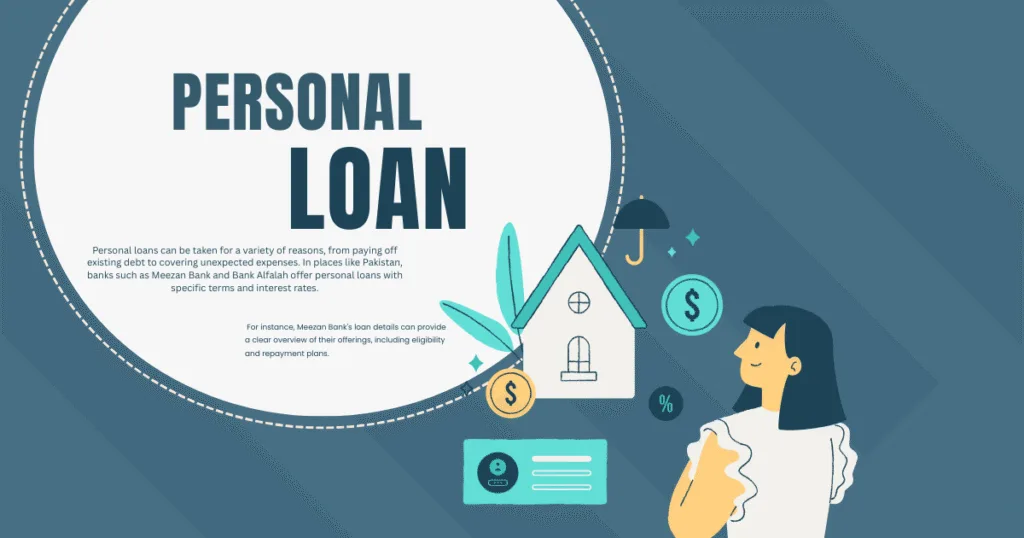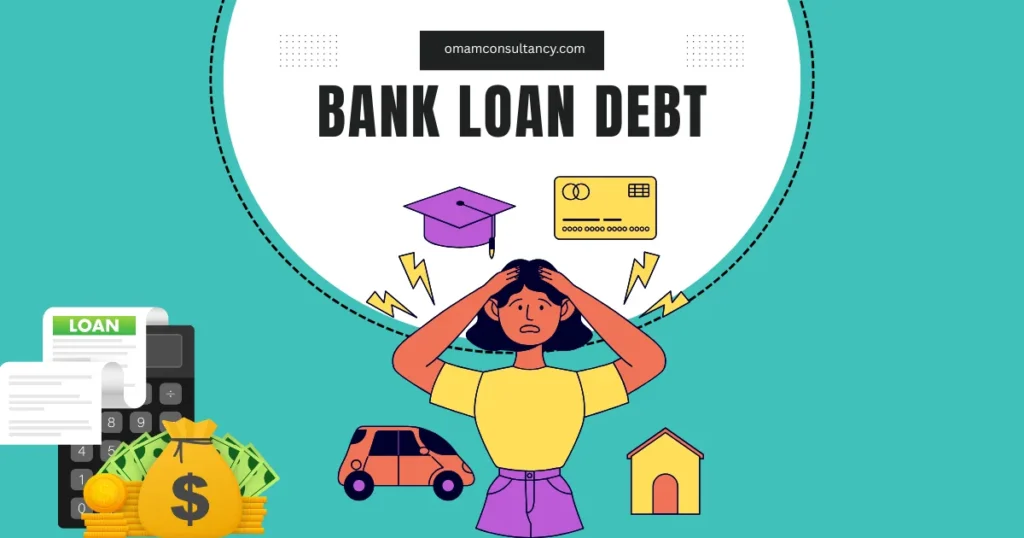Bank Loan Debt
When most people hear the term “bank loan debt,” it probably brings to mind stress, frustration, and maybe even panic. It’s no secret that many of us have at least one loan, whether it’s for a car, home, or even personal expenses. While loans can help us achieve things like buying a house or paying for education, when they become overwhelming, they can also turn into a financial burden.
In this section, we’re going to break down everything you need to know about bank loan debt: what it is, how it works, and why it can sometimes feel like a weight you can’t shake off. If you’ve been feeling overwhelmed by your debt or you’re just curious about how to better manage it, stick with me. This will be an easy-to-follow guide on what bank loan debt means, so you can start to take control of your financial future.
What Is Bank Loan Debt?
At its simplest, bank loan debt is the money you borrow from a bank or a financial institution that you need to pay back over time. It could be for anything – buying a new car, paying for home repairs, or covering unexpected medical bills. When you take out a loan, the bank gives you the money upfront, but you agree to pay it back in installments, with interest, over a set period.
For example, let’s say you decide to buy a car and take out a loan from your bank. The bank gives you the money to pay for the car now, but you promise to pay the bank back each month for the next few years, with a little extra (that’s the interest). This is what bank loan debt looks like. It’s important to remember that, while loans can be helpful, they also come with responsibility. If you don’t pay them back, you might face serious consequences, like damage to your credit score or even legal action.
Also read: How Debt Consolidation Simplifies Finances & Reduces Interest
Types of Bank Loans That Lead to Debt
Not all loans are the same, and understanding the different types of loans is essential when you’re dealing with debt. Here are a few common ones:
- Personal Loans: Personal loans can be taken for a variety of reasons, from paying off existing debt to covering unexpected expenses. In places like Pakistan, banks such as Meezan Bank and Bank Alfalah offer personal loans with specific terms and interest rates. For instance, Meezan Bank’s loan details can provide a clear overview of their offerings, including eligibility and repayment plans.

- Auto Loans: These are loans specifically for purchasing a car. They are secured loans, meaning the car you buy serves as collateral. If you fail to make payments, the bank can take the car back. This type of loan is common in many countries, including Pakistan, where people often look for online platforms to apply for a 10000 loan in Pakistan online apply.
- Mortgage Loans: This type of loan is used to buy a home. It’s also secured by the property, meaning the bank can foreclose on your house if you stop paying the loan. Mortgages tend to be long-term loans, often lasting 15 to 30 years.
- Student Loans: Many people borrow money to pay for education, and those loans often have different rules than other types of loans. However, they can still lead to serious debt if they’re not repaid on time.
- Credit Cards: While not technically a “loan,” credit card debt is a form of debt that often accumulates quickly due to high-interest rates. If you borrow more than you can repay, you might find yourself in financial trouble.
Each of these loans has different rules, interest rates, and repayment schedules. But no matter which type of loan it is, the key idea is that loan debt means you owe money and need to pay it back over time.
Why Do People End Up With Bank Loan Debt?
So, how do people get into debt in the first place? Well, there are many reasons why someone might end up in a position where they’re carrying bank loan debt:
- Unexpected Expenses: Life happens, and sometimes you need money quickly. Whether it’s an emergency medical bill or a major car repair, loans can provide quick access to funds, but paying them back can become a burden if things go south. For example, someone in Pakistan might turn to an urgent loan in Pakistan to get immediate financial help in a crisis.
- Poor Financial Planning: Sometimes people borrow more money than they can realistically repay. They might take out a loan for something they want but can’t afford, or they may not fully understand the loan’s terms, like the interest rate or the monthly payments. People often wonder how they can calculate their bank loan debt and how long it will take to repay it, which is where tools like the bank loan debt calculator come in handy.
- Living Beyond Your Means: For some, it’s simply a case of spending more than they make. When people rely too much on credit cards or loans to cover everyday expenses, it can quickly spiral into significant debt.
- Low Credit Scores: People with lower credit scores may have a harder time securing loans with good interest rates. This means they might have to take out loans with higher interest rates, making it harder to pay off debt over time.
The Emotional and Psychological Impact of Bank Loan Debt

If you’re carrying a lot of debt, you’ve probably felt the weight of it. It can be overwhelming. The financial stress can seep into all parts of your life, affecting your mental health, your relationships, and even your daily mood. But let’s talk about this for a moment, because it’s important to recognize how debt can make you feel:
- Anxiety: The fear of not being able to pay back the loan or missing a payment can be incredibly stressful. You might lose sleep over it or feel anxious every time you think about your finances.
- Shame: Many people feel embarrassed about their debt, especially if they’ve borrowed money for things that weren’t essential or couldn’t afford. This shame can lead to isolation and reluctance to ask for help.
- Frustration: If you feel like you’ve been paying off debt for what seems like forever without seeing any progress, it’s easy to get frustrated. Your finances might feel like an uphill battle, and that can leave you feeling defeated.
The reality is, bank loan debt isn’t just a financial issue. It’s a personal and emotional one. So, if you’re feeling overwhelmed, it’s okay. You’re not alone, and there are ways to manage and ultimately overcome debt.
The Importance of Facing Your Bank Loan Debt Head-On
Now, if you’re feeling a little overwhelmed by all this talk of debt, I get it. But here’s the good news: the first step to getting out of debt is understanding it. Once you know what you’re dealing with, you can begin to make a plan to take control of your finances.
Ignoring the issue won’t make it go away. It’ll only make things worse in the long run. So, it’s time to face the music. Recognize that bank loan debt is a part of your financial journey right now, but it doesn’t have to define your future.
FAQS about Bank Loan
Bank loan debt refers to the amount of money you borrow from a bank or financial institution that you are obligated to repay over time. When you take out a loan, you agree to pay back the borrowed amount (principal) plus any interest charged by the bank. This debt can be for various purposes, such as buying a home, a car, or personal expenses. The loan is typically paid back in regular installments, and failure to repay can lead to penalties or other financial consequences.
The length of a bank loan debt depends on the type of loan you have. For example:
Personal loans: Usually range from 1 to 5 years.
Mortgage loans: Typically last 15 to 30 years.
Auto loans: Usually last between 3 to 7 years.
Credit card debt: Can last as long as it takes you to pay off the balance, as there is no fixed repayment period.
The duration of repayment is outlined in the loan agreement, and it varies based on the amount of the loan, interest rates, and repayment terms.
If you can’t pay your bank loan, several things can happen:
Late Fees: The bank may charge you late fees for missed payments.
Damage to Credit Score: Missing payments can negatively impact your credit score, making it harder to borrow money in the future.
Interest Charges: The bank will continue to charge interest on the unpaid amount, which can increase the debt.
Legal Action: If you continue to miss payments, the bank may take legal action to recover the debt, which could include garnishing your wages or seizing property if the loan is secured (like a car or house).
Debt Collection: Your loan could be handed over to a collection agency, which may take more aggressive actions to recover the debt.
A bank loan is typically considered secured or unsecured debt, depending on the nature of the loan:
Secured debt: This type of loan is backed by collateral, such as a car or home. If you don’t repay the loan, the bank can seize the collateral to recover the money (e.g., mortgages and auto loans).
Unsecured debt: This type of loan does not require collateral. If you don’t repay, the bank may still pursue legal action or damage your credit score, but they can’t seize property directly (e.g., personal loans or credit cards).

